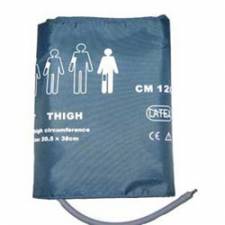by Jan McMeekin Product Manager - Welch Allyn

Just why was the Hatter mad? a look at mercury and its' hazards
We all know the famous tea party with Alice, the White Rabbit, the Dormouse and of course, the Mad Hatter. But how many of you know exactly why he was mad and why the phrase "mad as a hatter" is used universally in the UK. The reason is mercury - in the 19th century the prolonged exposure to mercury during the manufacture of felt hats caused mercury poisoning which could eventually lead to death.
Mercury is poisonous in all its forms more so than arsenic and cadmium. Usually, the harmful effects of mercury poisoning are seen after exposure to mercury vapour, which is readily given off by the liquid metal, for example, after a spillage or breakage of equipment.
Symptoms of Mercury Poisoning
Mercury attacks many of the body's systems. At low levels of exposure, symptoms are mainly related to nerve and brain function and include memory loss, mood instability, tremor and other stress-like symptoms. However, fully developed mercury poisoning is similar to Multiple Sclerosis with severe and disabling muscular inco-ordination. The damage is irreversible.
The higher ambient temperature in hospitals enhances the release of dangerous mercury vapour after a spill. Unless such spillages are dealt with quickly and efficiently, contamination of the floor and fabric of the room will continue to produce harmful mercury vapour for years afterwards.
Who is most at risk?
Anywhere mercury thermometers or mercury-containing blood pressure gauges are used, breakage causes spillage of mercury. Therefore occupations involving frequent mercury exposure such as doctors, nurses, laboratory workers and dentists are most likely to be exposed to the hazard. Mercury blood pressure gauges may also leak vapour from the open top vents and staff sitting in rooms containing several of these devices can be at risk.
In a recent survey undertaken in an Australian hospital, over 50% of wall-mounted sphygmomanometers had leaked mercury into the trays below the machines, making it inevitable that staff and possibly patients, would come into direct skin contact with the mercury. Subsequently, a workplace Health and Safety study showed that a vapour zone could extend a metre away from the equipment.1
Banning the use of Mercury
Mercury sphygmomanometers have been banned in France and Germany since February 2000 but to date, the same measures have not been introduced in the UK. The MDA is looking closely at the situation and says that a ban may be imposed in the future.
The MDA Guidelines recommend that consideration be given to the selection of mercury-free products when the opportunity arises, or for replacement of dysfunctional equipment. In the meantime, mercury is being stored inappropriately in hospitals and may not even be disposed of correctly.
Hidden costs involved in using mercury appliances
Although mercury devices are relatively inexpensive to purchase, the control measures and training required can increase the costs dramatically, even exceeding those of other types of blood pressure gauges.
All staff using mercury devices need to be fully trained on several issues to ensure safe handling:
- During normal use and storage
- In the event of a mercury spillage
- During maintenance operations, if performed in-house
- In the event of mercury disposal or when a complete instrument is discarded.2
When considering the number of devices which may be in use in hospitals and the number of different areas in which these are placed, costs for training can be very high.
Without special training, it is highly dangerous to cope with spillages. Specialist companies can be found and charges for a single spillage can be as high as £600. If trained staff are available in the hospital, spillage kits are available which cost up to £80.
In a particular example, a hospitals maintenance laboratory was closed after a safety check revealed that the mercury vapour level exceeded the occupational exposure limit, requiring expensive cleaning and causing disruption to work2.
When a mercury item is de-commissioned, the mercury has to be disposed of correctly. Many hospitals choose to double-bag the full waste containers and incinerate them; however, it is more environmentally acceptable to forward the waste to a specialist handling contractor.
Alternatives to Mercury Devices
The MDA bulletin issued in July 2000, gives advice on the different blood pressure measurement devices available.
These encompass all price ranges from the aneroid gauge to the top of the range automatic-cycling monitors. The Bulletin sets out the pros and cons of each of the alternatives and provides guideline prices.
No similar Guidelines have been issued for thermometry, but with the many electronic thermometers both tympanic and sublingual on the market, again finding a suitable alternative should not be a problem.
What can you do?
Many of you reading this article will, quite rightly, be concerned about your own health and that of your patients. Many mission statements from hospitals contain the aspiration to improve upon their patients well-being and that of the local community using mercury devices which can cause not only personal but also environmental problems, does not fulfil this ideal.
At the moment, the Government is not willing to impose an outright ban on mercury devices why this is, is remarkable when considering the hazards and the costs involved with spillages.
However, even without leadership from the Government, local action can be taken at hospital or ward level. The alternatives to mercury need not be expensive and other advantages can be gained with the new equipment.
For example, when considering thermometers, the benefits of using disposable probe covers which most electronic devices recommend, rather than just cleansing glass thermometers, can save money by reducing the risk of cross-infection.
When purchasing new equipment, some companies will even pay for disposal of old mercury devices eliminating another problem for hospital personnel when considering replacement.
People in contact with mercury need to be aware of the dangers and this includes patients. But the best way to make sure that no one is at risk is to take action to eradicate it yourself - whenever you get the opportunity.
1 O'Brien, Kerry European countries ban sphygmomanometer 7.30 Report, 2000 Australian Broadcasting Corp. 15/02/2000
2 MDA Device Bulletin Blood Pressure Measurement Devices - Mercury and Non-mercury July 2000
Jan McMeekin is Product Manager for Welch Allyn, a manufacturer of a wide range of medical devices and monitoring equipment supplying UK hospitals and Primary Care.




